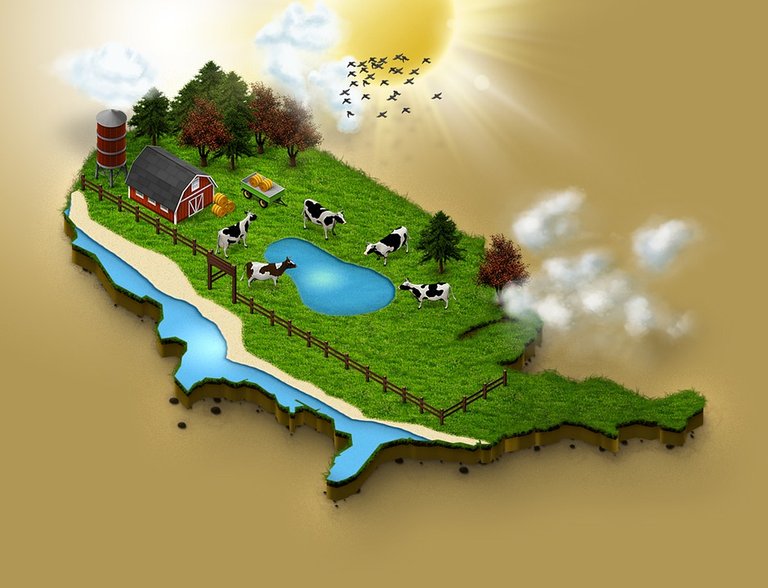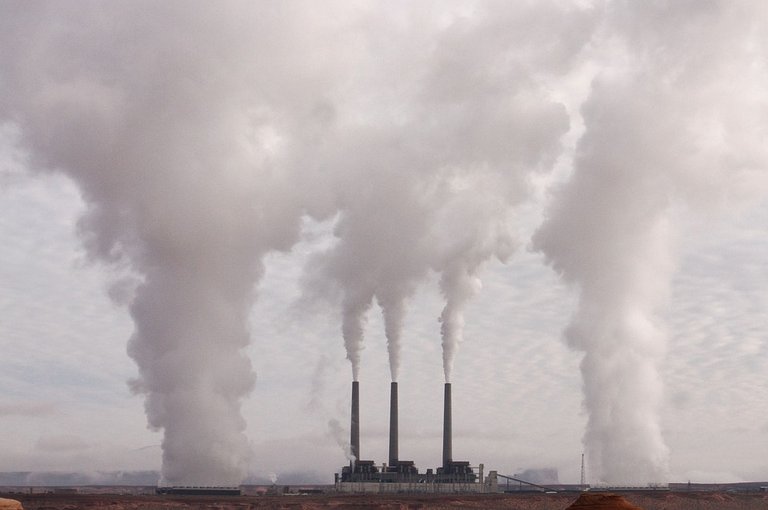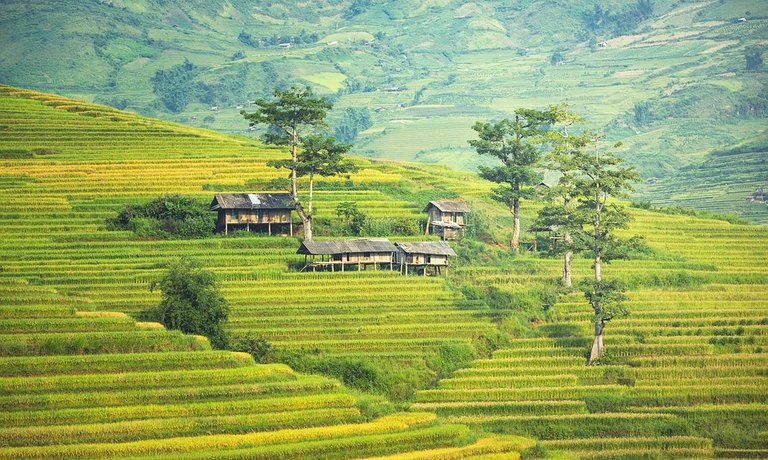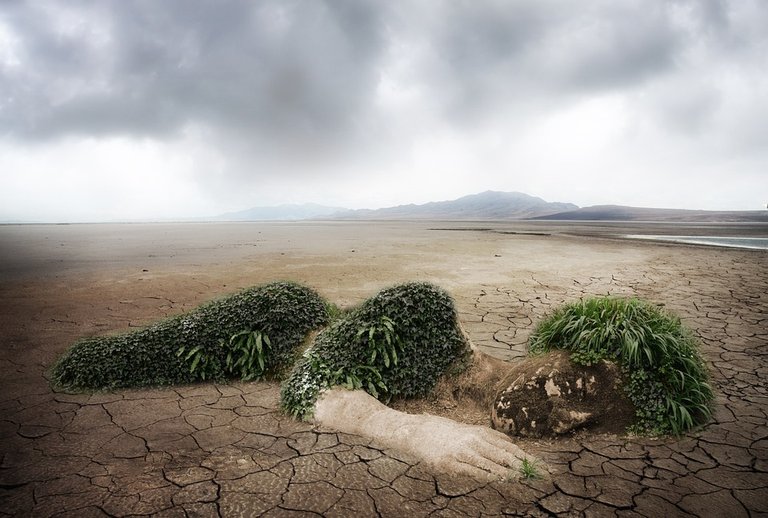Human life always depends on the services rendered by the biosphere and the ecosystem. The biosphere itself is indeed the result of a merger of all life on Earth. The composition of the atmosphere and soil, nutrient cycle through air and water and other ecological assets is the result of the processes of life and everything was retained and complemented by a living ecosystem. Humans, though it has had a culture and high technology, will ultimately depend upon the flow of ecosystem services.

Recognizing that human activities and economic development have caused ecosystem degradation, while on the other hand good ecosystem management will be able to alleviate poverty and achieve sustainable development.

MAKING HUMAN LIFE BETTER AND ACHIEVING SUSTAINABLE GOALS
All countries and communities in the world are struggling to meet the growing demand for food, clean water, health and employment. Policy makers in the private and public sectors should also seek a balance between economic growth and social development with environmental conservation. All these concerns are
directly or indirectly linked to the world's ecosystems.
History proves that the problems associated with the ecosystem are always approached topic by topic and very rarely used multisectoral goals. This approach did not last long. Activities undertaken to achieve a particular goal, for example increasing food production, often harm other interests, such as conserving biodiversity or improving water quality.
Effective management of the ecosystem will require action on all scales, from local to global scale. Human activities now directly or unintentionally affect all ecosystems in the world. the action required to manage the ecosystem is a set of activities that humans can accept to modify the ecosystem, either directly or indirectly. Options for management and policy, as well as stakeholder concerns, are very different at all scales. Priority areas for biodiversity conservation in a country determined on the basis of "global" interests, for example, will be very different from those defined by interests for local communities
ECOSYTEM SERVICES AND SERVICE RELATIONSHIPS WITH HUMAN WELFARE
Ecosystem services are man-made benefits of an ecosystem. These benefits may be the provision of services, arrangements and cultural services, which directly affect human life, as well as the support services necessary to generate and retain other services. Changes to these services will affect the welfare of the community through its impact on security, basic materials for decent living and health, and social and cultural relations.
The basic elements of well-being are influenced by humans and can influence the freedom (feedoms) and choices (choices) available to humans.

Ecosystem is a community of plants, animals and microorganisms along with dynamic and complex non-biological environment, and interact as a functional unit. Humans are an integral part of the ecosystem. Ecosystems provide a variety of benefits to humans, including provisioning, regulating, cultural and support services. Provisioning services are the results obtained by humans from ecosystems, such as food, firewood, fiber, fresh water and genetic resources. Regulatory services are the benefits that humans derive from regulating ecosystem processes, including maintaining air quality, climate regulation, erosion control, disease regulation and water purification. Cultural services are the non-material benefits that humans derive from ecosystems through spiritual enrichment, cognitive development, reflection, recreation and aesthetic experience. Supporting services are services necessary to produce all other ecosystem services, such as primary production, oxygen production and soil formation.
Biodiversity and ecosystems are two concepts close to each other. Biodiversity is the diversity of living organisms from various sources, including land, marine and other aquatic ecosystems, as well as the complex ecological systems in which they are located. This biodiversity encompasses deep and inter-species diversity and diversity in ecosystems. Diversity is a structural feature of an ecosystem, while variations among these ecosystems are elements of biodiversity. The results obtained from biodiversity are the range of services and products from ecosystems (eg food and genetic resources) and these changes in biodiversity can affect all services produced. Besides the important function of biodiversity in providing ecosystem services, the diversity of species also has intrinsic value.


Human welfare has various dimensions, including basic materials to gain a decent life, freedom and choice, health, good social relations, and security. Poverty is also multi-dimensional and is a condition very different from welfare. Welfare, deficiency or poverty are described and experimented in accordance with conditions and situations, reflecting local physical, social circumstances, and individual factors such as geographic, environmental, age, gender and cultural conditions. In all conditions, the ecosystem remains a very important thing to achieve human welfare because of the many services that humans can benefit from these ecosystems, including provisioning, regulating, cultural and supporting services.
Intervention or human intervention in managing ecosystems can multiply the benefits of this ecosystem to humans. However, in the last decade there has been much evidence of increased human impact on various types of ecosystems around the world, raising awareness of the spatial (space) and temporal (time) consequences of ecosystem changes that adversely affect human well-being.
Ecosystem changes can affect human well-being through a variety of ways:
- Access to basic materials for a decent livelihood. (is closely tied to the provision of services, such as food and fiber production, as well as regulatory services, including water purification.)
- Health. (closely linked to provisioning services such as food production and regulatory services,
including those affecting the distribution of insects that spread disease and pathogens present in water and air. Health can also be associated with cultural services through recreational and spiritual services.) - Social relations. (influenced by changes in cultural services, which will further affect the quality of human experience.)
- freedom and choice
- security

Supporting literature / Reference
- Millennium Ecosystem Assessment (MA)
- All photos from pixabay.com
- https://id.wikipedia.org/wiki/Ekologi
*adger, wn. 2003 social capital, collevtive action and addaptation to climate change. Economic geography.
All about my article part1, part2, part3, part4,part5, part6, part7, part8, part9, part10, part11, part12, part13.part14, part15, part16,part17.

by : @rabo
You received a 60.0% upvote since you are a member of geopolis and wrote in the category of "ecology".
To read more about us and what we do, click here.
https://steemit.com/geopolis/@geopolis/geopolis-the-community-for-global-sciences-update-4
Kalheuh ku rere beuh 😂, nyan bek tuwo weuk bacut haha
Hahahahaha... Akun fery ka hana lee lago,,
Ka keunong hack, alah kalheuh kupaso SBD bak akun nyo, na tinggai ideh sineuk teuk.
Kami upvote ya..
Yes, we indeed have a strong and clearly noticeable impact in the ecosystem, but I find that normal because as our intelligence grows, so does the complexity of the systems we created, and so far the only way to power those system has been to using means that can end up contaminating a little bit (or a lot depending how you look at it).
But this is an issue that will eventually be resolved as we get more and more efficient ways of powering our civilization. So there will come a day in which we can finally say we are not contaminating or damaging animals with our activities.
I agree with your views on the issue. but we are afraid that the lower the percentage of people to conserve the environment, so the impact of severity is worse than smart people's thinking to provide a positive solution.
Congratulations! This post has been upvoted from the communal account, @minnowsupport, by rabo from the Minnow Support Project. It's a witness project run by aggroed, ausbitbank, teamsteem, theprophet0, someguy123, neoxian, followbtcnews, and netuoso. The goal is to help Steemit grow by supporting Minnows. Please find us at the Peace, Abundance, and Liberty Network (PALnet) Discord Channel. It's a completely public and open space to all members of the Steemit community who voluntarily choose to be there.
If you would like to delegate to the Minnow Support Project you can do so by clicking on the following links: 50SP, 100SP, 250SP, 500SP, 1000SP, 5000SP.
Be sure to leave at least 50SP undelegated on your account.